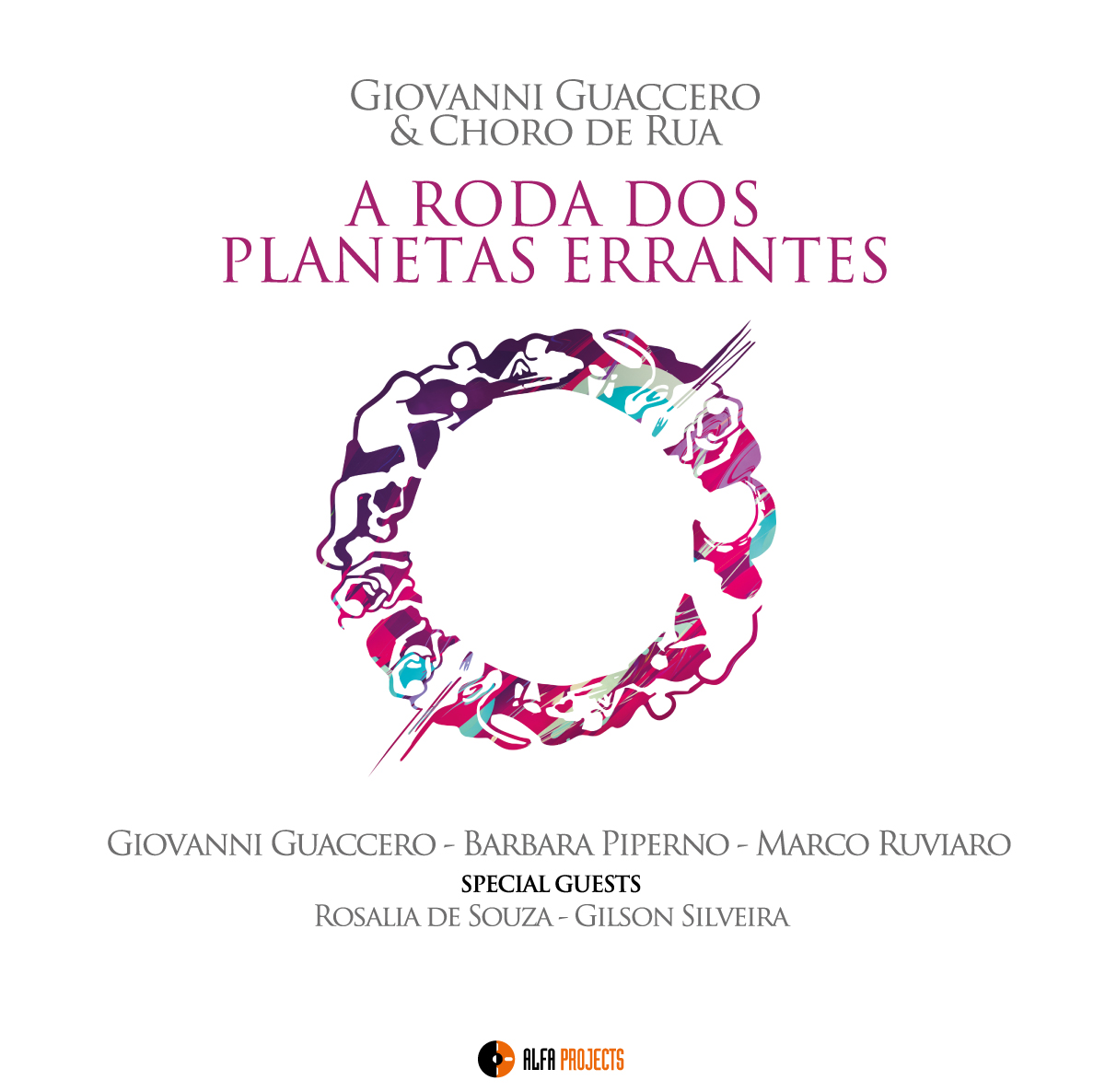
In addition to his work in classical contemporary music,
Giovanni Guaccero has long been a devotee of Música popular brasileira (MPB). After his initial exposure in 1976 to the mellifluence of the Portuguese language via the songs of Paulinho da Viola, he started listening to records by Vinicius de Moraes, Toquinho and Chico Buarque, and was also encouraged by his father who in 1981 took him to memorable concert by Baden Powell, a tribute to Vinicius. From then on he would go to the shows of all the top MPB performers when they came to Italy (Caymmi, Jobim, João Gilberto, Gil, Veloso etc).
In the early 80s he was the pianist and arranger in his first Brazilian group, and it was in 1986 that the crucial encounter took place in Rome with former singer
Ana Margarida, (carioca, ie from Rio, she had made a record with Luiz Eça and the Tamba Trio in 1965). It is thanks to her that he got involved in the bossa nova scene, forming the group Construção with
Ana Chagas in 1987.
In the early 90s he started playing Rome's jazz circuit with carioca singer
Rosalia de Souza, with whom he went on to compose various songs, often playing with
Marcelo Martins, who is regarded as one of the top Brazilian saxophonists, having worked closely with Djavan and Ivan Lins. In 1994 he organized a concert at Rome's Centro de Estudos Brasileiros (CEB) with the participation of
Olivia Hime and
Francis Hime, which saw the performance of his compositions together with pieces by Hime. In the same period he got to know the poet
Maria Lúcia Verdi (then director of the CEB), and he used her texts for many pieces later performed and recorded with his group
Alquìmia, founded with
Sandra Del Maro in 2000.
In Rio de Janeiro in 2005 he was introduced to the poet
Geraldo Carneiro (who had worked with Egberto Gismonti), with whom he composed the song Em surto de poesia. He also met
Roberto Menescal, who he had got to know previously in Rome. The following year he formed the group
Obalalá with Sandra Del Maro, which was also an opportunity for the live presentation of some of the pieces composed with the poet
Luís Elói Stein, which were also performed later on by the singer and guitarist
Zé Galia and by other Brazilian music groups.
In 2009 Rosalia de Souza included his piece Ondina on her CD D'improvviso. This had been written in Salvador de Bahia with
Marco Antonio Costa, a musician and poet from Bahia who he had met in Rome and with whom he had already composed various songs in the late eighties. The following year he published a musical children's tale L'Arco magico (Ed. Anicia), inspired by the berimbau, in which de Souza also took part.
In 2014 he recorded the piano accompaniment to the voice of
Chico Buarque de Hollanda, together with Stefano La Via on guitar, on the carioca artist's piece Senza te (Sem você 2) included on the CD provided with the book "Chico Buarque. Canzoni" by Stefano La Via (Pavia University Press).
The CD A roda dos planetas errantes (The circle of wandering planets) came out in 2016 on the Alfa Music label. Made with the duo Choro de Rua (
Barbara Piperno, flute, and
Marco Ruviaro, seven-string guitar) and featuring Rosalia de Souza and Gilson Silveira, it showcases his choro compositions. In the presentation in the CD's booklet,
Guinga wrote: "Brazilian music is proud to influence an artist of such talent […]. A record which is extremely consistent and aesthetically perfect.".
He has also played with Nicola Stilo, Roberto Taufic, Zé Galia, Eddy Palermo, Alessandro D'Aloia, Massimo Aureli, Giulia Salsone, Pedro Scassa, Mishael Levron and Alípio C. Neto, and he recently formed the group
EfeitoBrasil in Reggio Calabria with Roberta Piccirillo.
He has also been involved in the dissemination of MPB for some time now, both via the publication of articles ("L'ornamentazione melodica nello choro brasiliano", Musica/Realtà, 2011, "Un'altra popular music: il caso Brasile", Musica Domani, 2012), and in teaching. For the last few years he has led the "Canzone brasiliana" workshop at Rome's Scuola Popolare di Musica di Testaccio, the context in which he organized two seminars with Guinga in 2011 and 2016. In the period 2012-13 he held the following seminars: "Samba vs. Bossa" (Rome - Testaccio) and "B come Berimbau" (Reggio Calabria - Museo dello Strumento Musicale), both with Gilson Silveira, and "Chico Buarque e l'arte della canzone" (Rome - Testaccio), with
Stefano La Via and
Barbara Casini.
His love for MPB has never waned, given his conviction that this is one of the world's richest, most complete and most important musical cultures, a culture which has had a powerful influence on his music, especially via the work of the artists Pixinguinha, Tom Jobim, Chico Buarque, Egberto Gismonti, Milton Nascimento and Guinga.

